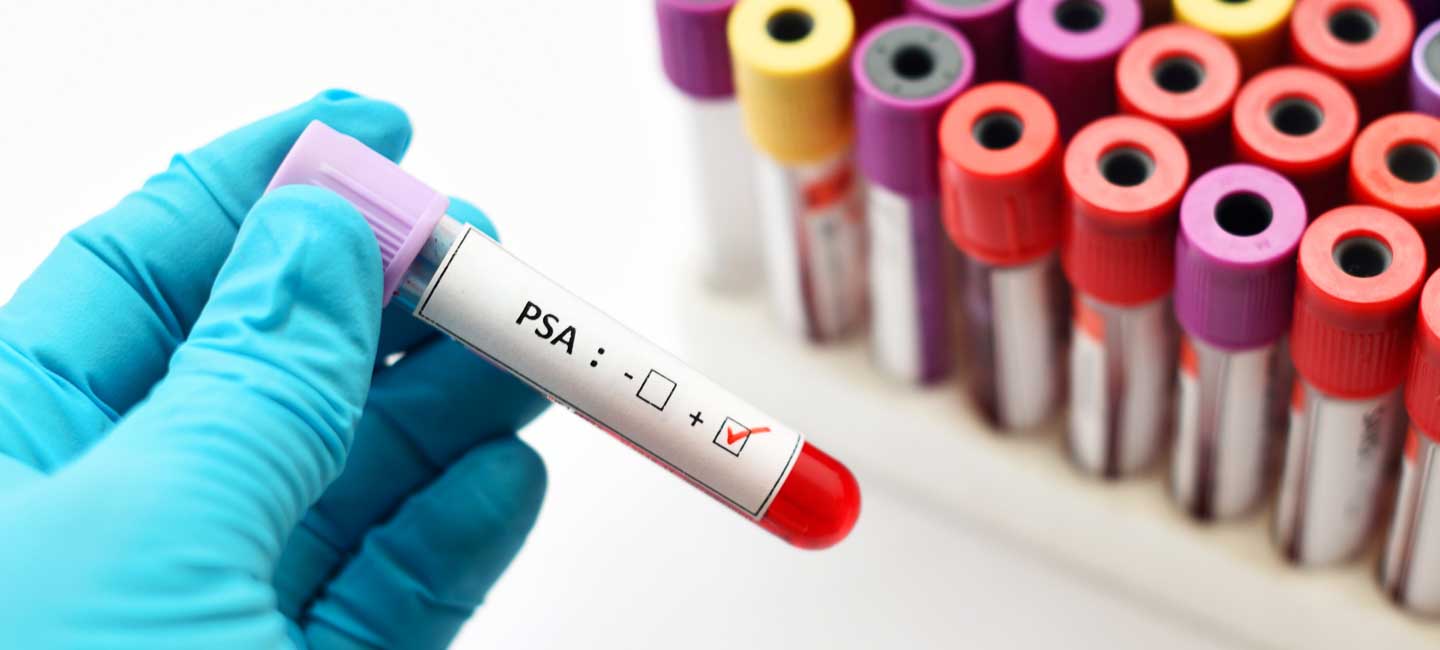PSA Testing: What Is It and Is It Right for Me?
Screening can help find many prostate cancers early, but there are still questions about whether the benefits of screening outweigh the risks for most men.
One of the tests is a prostate-specific antigen (PSA) blood test.
Most men without prostate cancer have PSA levels under four nanograms per milliliter of blood. The chance of having prostate cancer goes up as the PSA level goes up. Men with a PSA level between four and 10 have a one in four chance of having prostate cancer. If the PSA is more than 10, the chance of having prostate cancer is over 50 percent.
A number of factors can raise PSA levels:
- Older age
- An enlarged prostate
- Riding a bicycling
- Certain urologic procedures
- Certain medications
A number of factors can also cause PSA levels to drop:
- Herbal mixtures
- Obesity
- Aspirin
The PSA test is not 100 percent accurate and can sometimes have abnormal results when a man does not have cancer or normal results when a man does have cancer. Unclear results can cause confusion and anxiety.

Dr. Julio Pow-Sang, Genitourinary Oncology Department Chair
“While prostate cancer screenings can help identify and treat the potentially life-threatening disease, some prostate cancers will stay dormant or could take decades to become a problem,” said Dr. Julio Pow-Sang, chair of Moffitt’s Genitourinary Department. “These cases do not need to be treated and men could have side effects from treatment such as incontinence and erectile dysfunction. There are also the psychological effects associated with a false positive test, as over half of men who undergo a biopsy for an elevated PSA prove negative for cancer.”
That’s why Moffitt recommends that men speak with their health care provider to make an informed decision about whether or not to be screened for prostate cancer. According to the American Cancer Society, these discussions should take place at:
- Age 50 for men who are at average risk of prostate cancer and are expected to live at least 10 more years.
- Age 45 for men at high risk of developing prostate cancer. This includes African Americans and men who have a first-degree relative (father, brother or son) diagnosed with prostate cancer at an age younger than 65.
- Age 40 for men at even high risk who have more than one first degree relative who had prostate cancer at an early age.
You can learn more about prostate cancer screening from the National Comprehensive Cancer Network, American Urological Association and American Cancer Society.



